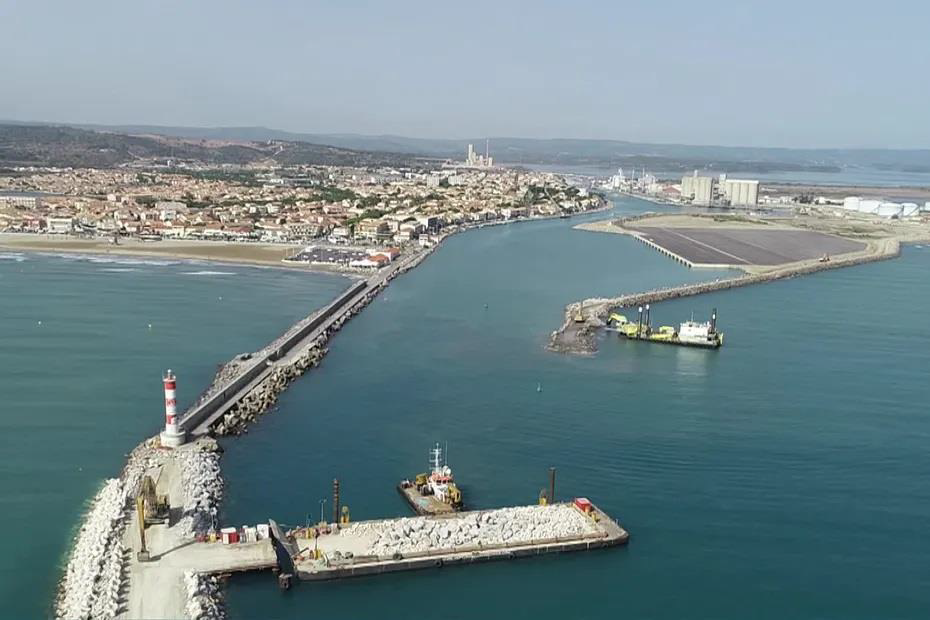Port-La-Nouvelle port concession
- 23-06-2022

The Port-La Nouvelle port concession is the first port in France to be co-managed by private companies and public players. The SEMOP (semi-public company with a single operation) has signed a public service concession contract for the development, operation, management and expansion of the commercial port of Port-La Nouvelle with the Occitanie Region.
The SEMOP associates public players the Occitanie Region and the Banque des territoires (up to 49%) and Nou Vela, a group of private shareholders (up to 51%). The Nou Vela grouping brings together leading players in the maritime, port and renewable energy sectors. The private partners offer a strong complementarity to the success of the port, as they share a long history of cooperation on common projects and are long-term investors in the maritime economy. Nou Vela includes the following actors who are shareholders in the project: DEME Concessions (infrastructure and renewable energy), Euroports (operator), EPICO, QAIR (power producer of renewable origin) and the Chamber of Commerce and Industry of the Aude.
Sustainable growth
Since 1 May 2021, the SEMOP has been operating the commercial port with increasing success.In the meantime, the SEMOP has reached financial closure to finance the development of the port infrastructure of Port La Nouvelle, and has started the investment works. SEMOP pursues a policy of sustainable growth that responds to long-term global challenges. The consortium’s ambition is to develop Port-La Nouvelle as a green, sustainable port which will see an increase in the volume of traditional goods in the first phase, while at the same time resolutely turning towards the energy transition, moving towards sustainable flows which fully support this energy transition.
Largest port investment since 2000
The Port-La Nouvelle project represents the largest port investment undertaken in France since ‘Port 2000’ in Le Havre. The port extension works started in 2019. SEMOP is continuing them. The overall surface area of the port will increase from 60 to 210 hectares, notably with the construction and development of a 70 hectare logistics activity zone at the rear of the new port complex. The growth of the port will be driven mainly by new activities linked to the energy transition and the circular economy, which will account for half of the traffic (green hydrogen, offshore wind turbines, circular economy). The other half will be made up of heavy packages, hydrocarbons, biofuels and solid bulk (cereals, minerals, fertilisers, forestry and cement products).
Financial close
SEMOP has reached financial close with leading European institutions: KBC Bank NV, KfW IPEX-Bank GmbH, MEAG, Edmond de Rothschild Asset Management, and the Caisse d’Epargne du Languedoc-Roussillon. Key advisors supporting the project’s realisation and financing were 8Advisory as financial advisor, Racine Avocats (legal advisor to the SEMOP), A&O (legal advisor to the lenders), Atkins Global (technical advisor to the lenders), EGIS (technical advisor to the SEMOP), DsG (commercial advisor), DNV (technical and commercial advisor to the floating wind turbines), KPMG (tax and accountancy), and H3P (financial model advisor to the lenders).